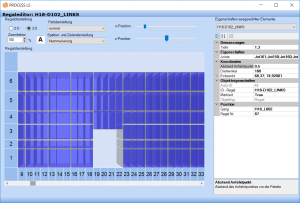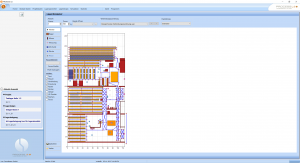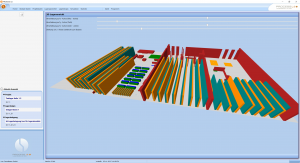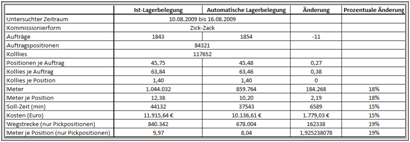One of the most personnel- and cost-intensive areas of logistics is the warehouse area and the picking systems. We have carried out process analyses in many projects for well-known logistics service providers and developed a wide range of solutions to increase the productivity of order picking personnel and reduce costs. Contents were among other things:
We have developed our own software especially for warehouse planning and evaluation: PROCESS LS.
With this you can build the stock topography similar to CAD systems. Each shelf can be revised individually with the warehouse designer. For example, a doorway can be created, or a shelving system can be planned for a pallet space.
Afterwards, article master data, order data from the order history and the current warehouse occupancy are imported via defined interfaces to the LVS and WWS.
In addition, the default times (e. g. for order times, position times, speeds or gripping classes) are entered. The article groups are used to classify articles according to arbitrary characteristics (for example, weight, volume, merchandise categories). If required, defined storage areas can also be reserved for specific article groups. After this preparation, the data is evaluated via an ABC analysis.
The system now calculates the capacitive and monetary actual state on the basis of the real order data. The program then automatically allocates the articles to the storage locations, taking into account all previously defined restrictions. The same order data is then recalculated as an alternative. Then, for example, shelves or storage bins can also be changed. In the results ares, you can immediately see whether the new modification is more favourable than its predecessor, or if the actual situation is the same. Additionally, the aisle use can be tracked via a diagram in order to avoid new disturbance times resulting from excessive utilisation of certain aisles.
With this intelligent solution for the optimization of order picking processes, savings of more than 15% in personnel costs have already been achieved!
Optimised warehouse planning, adapted picking systems and options for simulating storage factors offer great savings potential, but are often neglected.
Please do not hesitate to contact us for more information about warehouse planning, picking systems and simulation!






